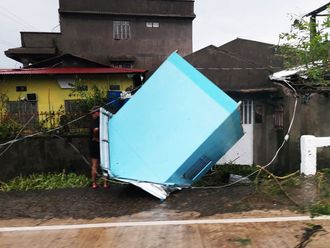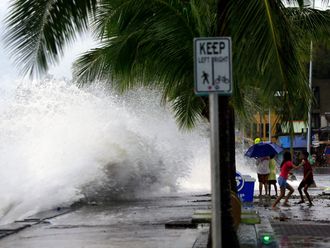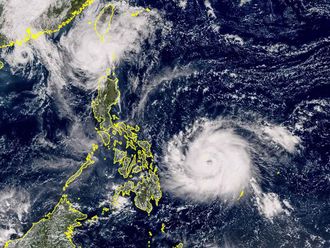Manila: Activists criticised the “green economy” projects of President Benigno Aquino as anti-poor and anti-environment, opposite to the United Nations’ aspiration for sustainable development, a newspaper has reported.
Included in the public-private partnership programme of the Aquino administration are 54 big ticket projects on 90,000 hectares of freshwater in Laguna Lake in southern Luzon. Fernando Hicap, national chairman of Pamalakaya, a federation of small fisherfolks told the Star.
Called the Laguna Lake Master Plan, also identified as Aquino’s “green economy development programme,” the projects were designed to transform Laguna Lake into a major industrial and commercial hub for foreign and local investments, said Hicap.
The Aquino administration has also offered 38 land reclamation projects in Manila Bay. The project, also part of Aquino’s green economy programme, will eat up 26,234 hectares of foreshore areas and coastal lands surrounding the bay, said Hicap.
Further, the government has likewise offered 10 million hectares of ocean waters in Visayas Sea in the central Philippines; Palawan Sea and Sulu Sea in the southern Philippines, all in the disputed South China Sea for oil and gas exploration, said Hicap, adding, “The widespread offshore mining projects offered to mining firms have been ironically identified as part of Aquino’s green economy.”
These projects, because they include public domain, would “initially cost local taxpayers some Peso 400 billion (Dh33.33 million),” said Hicap. He did not give details.
Aquino’s “mad rush” for green economy, was also inspired by the so-called Green Economy of the United Nations Conference on Sustainable Development, said Hicap on the eve of the Rio + 20 meeting of government leaders in Brazil from June 20 to 22.
Lita Mariano of the National Federation of peasant Women (Amihan), also blamed UN’s summit for government leaders’ wrong approach in implementing the so-called “green economy” which also refers to sustainable development.
“Twenty years ago, capitalist exploiters made use of the same recipe, courtesy of the First Rio Earth Summit in 1992,” said Mariano.
The green economy agenda in Rio+20 “will continue to and further intensify the policies of liberalisation, privatisation, deregulation and denationalisation of underdeveloped economies [at the expense of the environment and the poor],” warned Mariano.
Both Hicap and Mariano believe that the spirit of Aquino’s development projects do not help protect the environment of future generations of Filipinos, nor do they help poor people.
Hicap and Mariano’s groups joined KMP, a Philippine farmers’ group, and the Asian Peasant Coalition (APC) at the meeting of International League of Peoples’ Struggle (ILPS) in Rio de Janeiro, held side by side with the UN’s Rio+20 meeting.
Identifying what should be tackled at the Rio+20 meeting, Desmond Tutu, emeritus archbishop, global ambassador for Oxfam, a non-government organisation fighting poverty in 85 countries, said in a statement, “In Rio, we need strong and unequivocal political commitment to reorient the global economy to meet the needs of the poorest while respecting the earth’s limits [and thus enhance environment protection].”
“With the right support and techniques small farmers can help feed our growing population without doing further damage to the environment and sending our climate out of control,” Tutu explained.
“We need concrete action to ensure that we have sustainable food supply particularly by helping the half a million of small-scale producers who currently feed two billion people. We cannot continue to live as we do now,” Tutu said.
He also talked of climate change as a bane for food production; and the current economic crisis in the United States and in some European countries as a trigger that pushes millions of people into deeper poverty.
“The lifestyles and choices made by the wealthiest threaten all our future security and prosperity, while almost a billion people go to bed hungry every night,” said Tutu, adding, “The world’s poorest people, who are denied their fair share of our limited resources of land and water, are suffering most from our collective failure to live within the earth’s boundaries.”
The Rio Earth Summit was held in Brazil in 1992.












